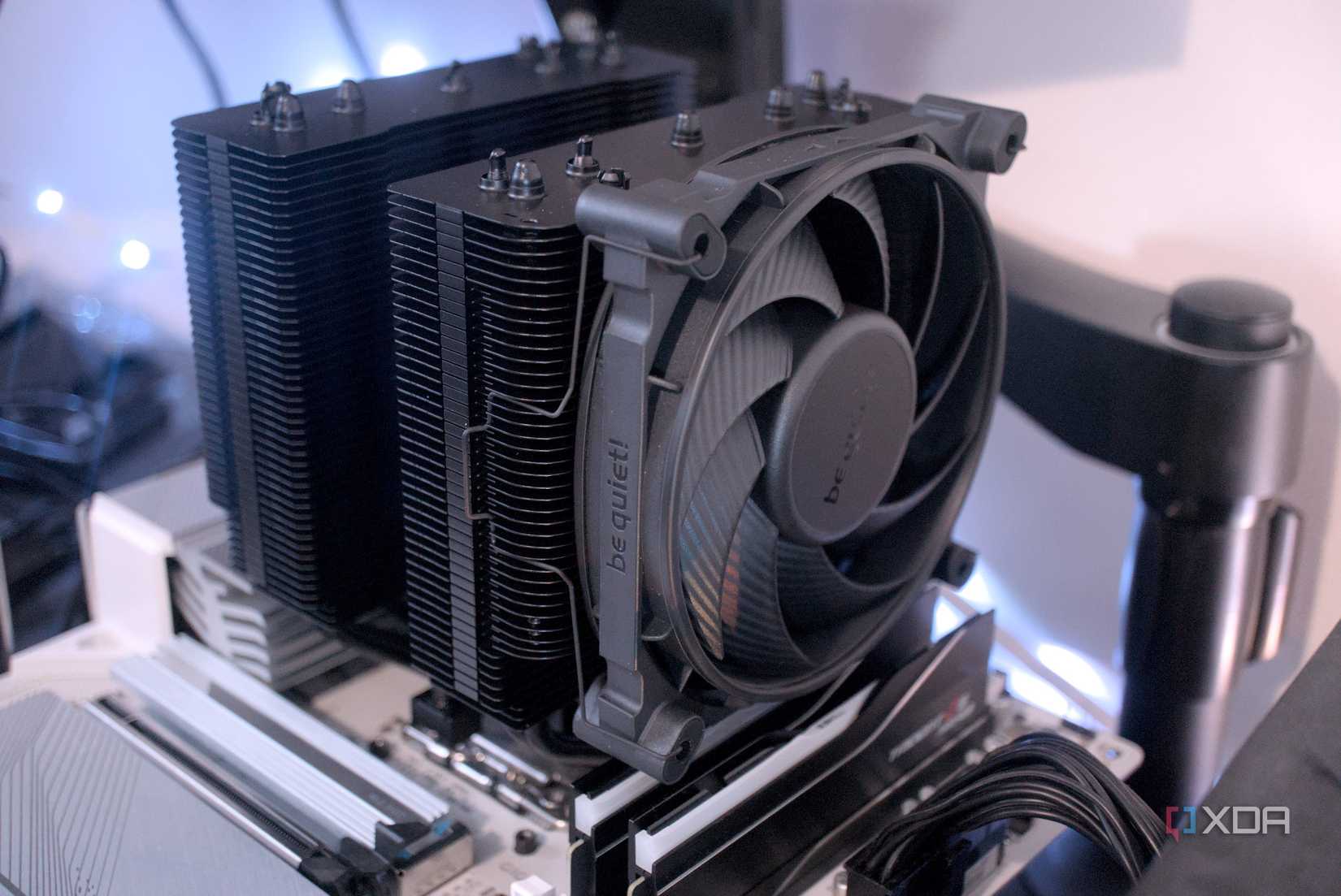After a 7-year corporate stint, Tanveer found his love for writing and tech too much to resist. An MBA in Marketing and the owner of a PC building business, he writes on PC hardware, technology, and Windows. When not scouring the web for ideas, he can be found building PCs, watching anime, or playing Smash Karts on his RTX 3080 (sigh).
The choice between air and liquid cooling comes down to several factors. Most users pick one or the other based on esthetics or price, unless they're using the highest-end CPUs. In that case, performance is often the deciding factor. For the majority of PC users, however, air coolers are predominantly the smarter choice. Liquid cooling is not only unnecessary for most modern CPUs, but also comes with additional concerns around installation and longevity.
Most people aren't buying power-guzzling CPUs
6 cores are enough for most use cases
Some people are surprised to know that air coolers can perform as well as liquid coolers, sometimes even better. Many new PC builders assume that they need a 360mm AIO cooler for their 6-core or 8-core CPU, despite all evidence to the contrary. Today's 65W and 105W processors are small fry for even the cheapest air coolers, such as the Thermalright Phantom Spirit 120 SE. Many air coolers can easily handle 200W of CPU load, making them ideal for high-end chips as well.
If you're building a gaming PC, you don't need a high-end CPU anyway. Unless you have an RTX 5090 or RTX 5080, a high-end chip like the Ryzen 7 9800X3D won't make a tangible difference to your FPS. That makes high-end liquid coolers pointless for the majority of gamers. For non-gamers who aren't chasing professional-grade performance, entry-level or mid-range CPUs are the best choice. The only consumer that really needs high-performance liquid cooling is the one who's regularly pushing their top-tier chip to the limits.

Thermalright's Phantom Spirit 120 SE is a bigger version of its acclaimed Peerless Assassin 120 cooler. It has seven heatpipes compared to the six on the Peerless Assassin and is a bit bigger, which means better cooling capacity.
Overclocking isn't as popular anymore
No liquids necessary
Speaking of pushing one's CPU to the limit, CPU overclocking has lost its sheen. Once coveted as the ultimate tool to maximize CPU performance, it's relegated to a niche community chasing records or views. The thing is, modern CPUs are essentially factory overclocked, tuned nearly to their limits to cater to an increasingly mainstream PC market. Most people don't like to tweak their hardware to extract its true performance. Without overclocking, the need for liquid cooling has diminished significantly.
The gains from overclocking have been reduced to the point that the time and effort it demands are not worth it anymore. PC users are happy with using PBO on their AMD CPU and relying on Turbo Boost on Intel chips. Stock settings with a bit of automated overclocking are something that air coolers can easily handle. They're also equipped for minor overclocks if you're curious about what your CPU is capable of.
Liquid coolers don't make sense on budget builds
Not quite the right "fit"
When we're talking about the majority, it's obvious that budget PCs constitute most of the builds in question. If a consumer is trying to maximize performance per dollar on a sub-$1,000 PC, they're probably not looking to spend a lot on cooling. This rules out expensive liquid coolers from consideration. Granted, you can get some 360mm AIO coolers for around $50, but quality air coolers are even cheaper.
Budget builders are likely to stick with a CPU like the Ryzen 5 7600 or Ryzen 5 5600X. These entry-level chips don't need massive cooling hardware; a budget air cooler is more than enough. Even if they upgrade to an 8-core chip later, they won't need a new cooler. Some budget cases don't even support 360mm radiators, and instead of making do with a 240mm AIO, it's better to get a powerful air cooler instead.
Many AIOs suffer from performance or reliability issues
Not worth the hassle
You might think that you get what you pay for when buying an expensive liquid cooler. Sadly, that's not always the case. Many cheaper AIOs are known to underperform when compared to similarly priced air coolers. I've seen this in action on my Cooler Master ML240L V2 — upgrading from an air cooler to this AIO wasn't the upgrade I expected. It failed to keep my Ryzen 7 5700X below 50℃ under idle conditions.
Then there are the reports of prematurely failing AIOs, where the pump fails or the liquid starts leaking. Besides being a major annoyance, such incidents threaten to kill other components inside the PC. There are multiple points of failure in a liquid cooler. If it's not the pump or the tubing, the radiator can get clogged up, especially on the cheaper models. Air coolers are simpler in construction and more reliable for long-term operation. Not all AIOs will fail, but enough do that you should consider this a downside.
Air coolers are easier to work with
Most people like to minimize the effort

Air coolers might win in the longevity department, but they're also easier to install when you first put your build together. Since you only need to install a heatsink and attach the fans to it, it's a straightforward job that barely takes any time. Installing liquid coolers isn't rocket science either, but it's more complicated for the average user, and takes more time.
Plus, there's a lot more that can go wrong — you might dent the radiator fins when screwing it to the case, bend the tubes a little too much, or mess up the orientation of the radiator vis-à-vis the heatsink. This difference might not sound like a lot to the experienced builder, but it can be the deciding factor for a newbie.
Go air or go liquid — what do you choose?
If you've built multiple PCs, you have probably used both air and liquid coolers. Which one feels better over the long term? I'm curious how many people have gone back from AIOs to air coolers, especially when building a new PC. Many of us are tempted to spend a few more bucks on a liquid cooler and call it a day, but some users stick to air coolers on all their builds. For the average user, air coolers are the smarter choice, be it in terms of performance, price, convenience, or longevity.
.png)












 English (US) ·
English (US) ·